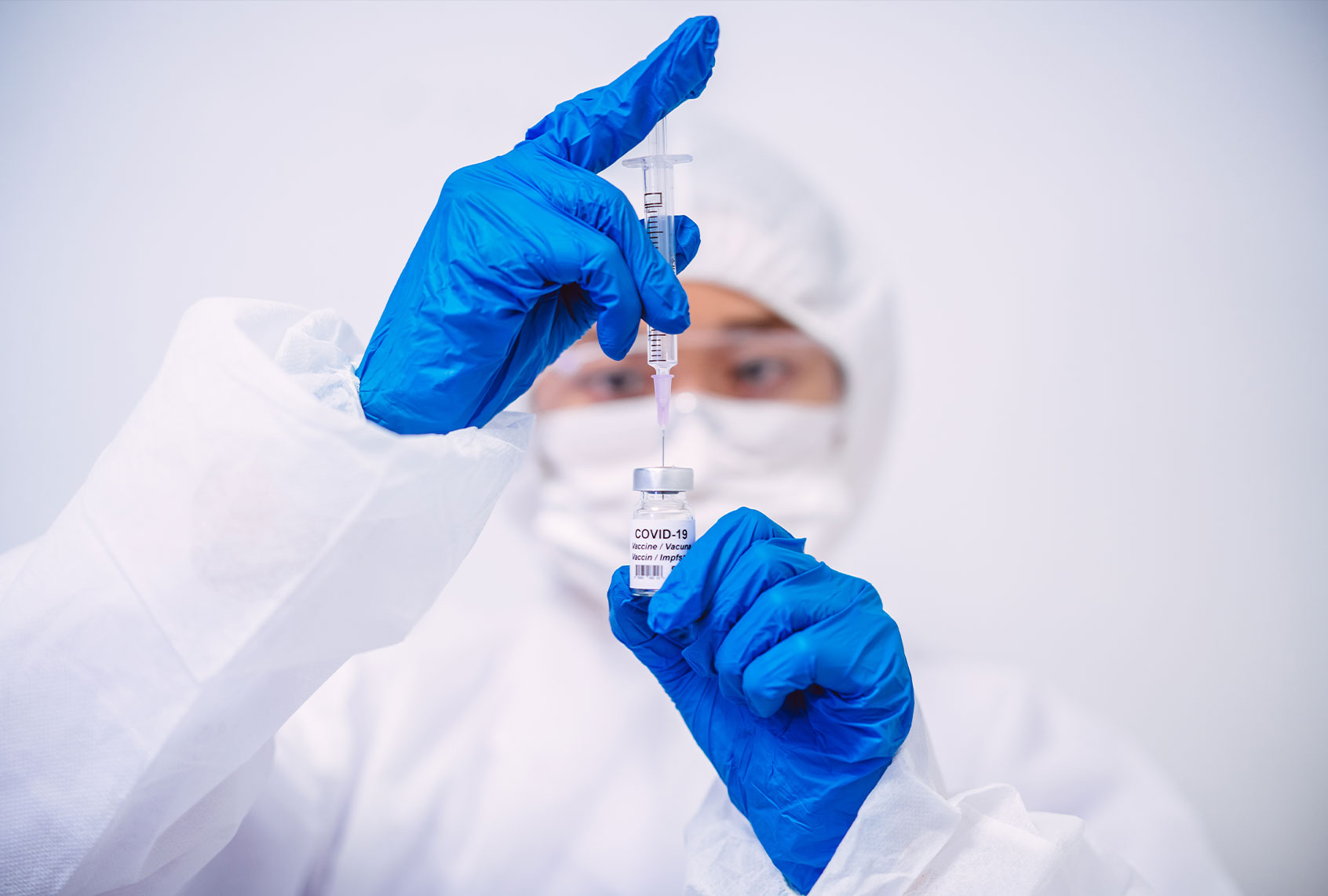The immune system is a marvel of evolution, and it is far from being fully understood. The newest immunological head-scratcher: Researchers have found that being vaccinated recently for something other than coronavirus — say, a hepatitis or measles vaccine — makes one more resistant to COVID-19.
In an article published last month by the journal Scientific Reports, scientists found that a number of different vaccines were associated with lower rates of infection by the SARS-CoV-2 virus, which causes COVID-19. These included the vaccines for Geriatric Flu, Haemophilus influenzae type-B (HIB), hepatitis A/hepatitis B, measles-mumps-rubella, pneumococcal conjugate, polio and Varicella.
In particular, the patients studied who had been vaccinated against polio and HIB generally had the lowest relative risk for being infected by SARS-CoV-2 across all time horizons. (A “time horizon” refers to the amount of time a patient has been using a given vaccine.)
The study also found that, among younger patients, there was a “strong negative correlation” between having received their measles-mumps-rubella vaccine and Varicella vaccines and rates of SARS-CoV-2 infection.
But as with many scientific studies that have sociological components, it is hard to separate causation and correlation. For instance, it may be that those who are regularly vaccinated are healthier and more aware of their health in general, and thus less likely to contract COVID-19 as a result. If the two facts are causally linked, it may well be that those other vaccinations actually are slightly protecting the populace against COVID-19, perhaps through some immune mechanism.
“Causality is nearly impossible to extract through retrospective observational studies like ours that are enabling inference from real-world data sets,” Dr. Venky Soundararajan, co-founder and chief scientific officer at the biomedical data company Nference and corresponding author of the study, told Salon by email. “However, the phenomenon of immune training — wherein the immune system, similar to our muscles, learn from repeated stimulation — is being increasingly better understood through multiple biological studies that have examined surprising cross-protective effects from vaccination for ostensibly unrelated conditions.”
As Soundararajan alluded, the concept of “immune training” is roughly analogous to that of weight training. Weightlifting regularly makes one’s body more adept at lifting heavy objects in the real world, outside of the safety of the gym; comparably, giving one’s immune system a metaphorical workout through regular vaccines may have a similar effect on real-world pathogens.
“Anything that boosts our immune system – like other vaccines — helps us fight other viruses or pathogens,” Dr. Monica Gandhi, an infectious disease doctor and professor of medicine at the University of California–San Francisco, told Salon.
Gandhi noted that there is evidence that immune training works.
“This is one idea behind why India did better than other countries in not having high rates of severe disease with COVID-19 — because of frequent exposure to other pathogens,” she added.
Want more science stories in your inbox? Subscribe to Salon’s weekly newsletter The Vulgar Scientist.
“Some crossover immunity is enhanced by vaccinations for other infectious diseases,” Dr. Georges Benjamin, executive director of the American Public Health Association (APHA) and former secretary of health in Maryland, told Salon. He speculated that the process “probably works by activating the body’s immune system in a general and nonspecific way to protect some against new disease.”
Soundararajan added that, when it comes to COVID-19, he believes the new study is the first to draw a decisive link between reduced risk of developing the disease and “specific, recent, non-COVID vaccination.” He argued that the methods used in the study reduce the chances that the results are coincidental. Soundararajan even suggested that the safe administration of these other vaccines for other diseases are a supplement to keep Americans safe “in conjunction with” FDA-authorized COVID vaccines.
Some experts uninvolved with the study were more hesitant to draw conclusions.
“This has been seen for other diseases, so I think there is a reasonable chance this is a real effect,” Dr. Justin Lessler, an epidemiology professor at Johns Hopkins University, wrote to Salon. Lessler said there are “many factors” that affect vaccination and COVID-19 risk, and advised being “cautious about interpretation.”
Lessler’s views were echoed by Dr. Russell Medford, Chairman of the Center for Global Health Innovation and Global Health Crisis Coordination Center.
“This is an observational study by its very design is exploratory and only shows a modest relationship, but not cause-and-effect, between prior vaccinations for some other pathogens and a reduced likelihood of COVID-19 infection but not for hospitalizations or severe disease,” Medford told Salon by email.
He added, “This study in no way obviates the need for COVID-19 vaccinations.”
Indeed, there is overwhelming consensus among public health experts that the most surefire way to protect oneself and other people from COVID-19 is to get vaccinated.


